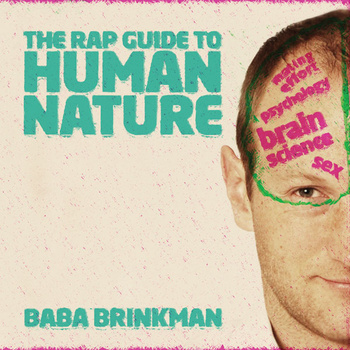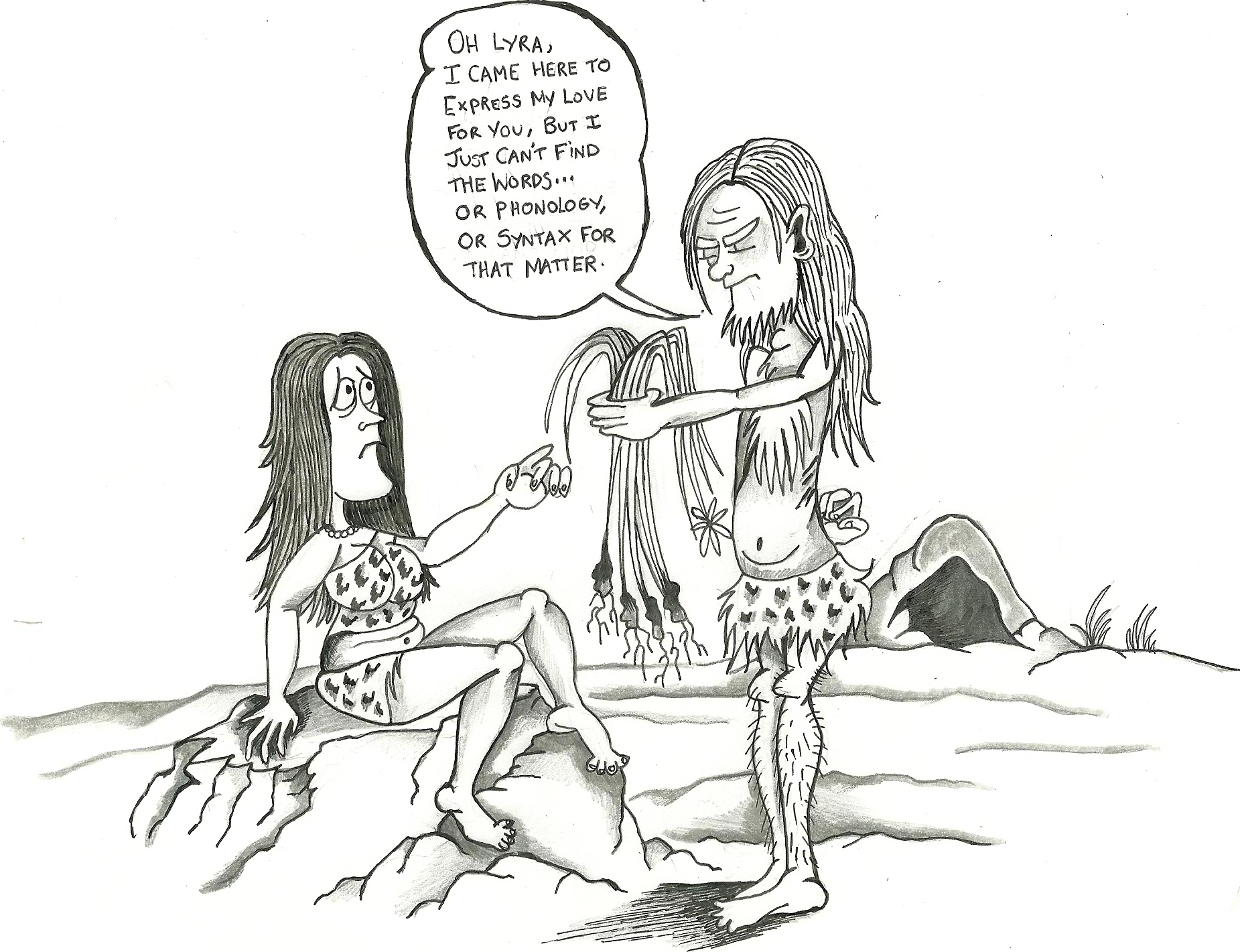Last year at Edinburgh’s Fringe Festival me and several of my friends saw this brilliant show called the Rap Guide To Evolution (which I briefly blogged about here). Well this year the same rapper, one Baba Brinkman, was back with a new show: the Rap Guide to Human Nature. Unlike most rap attempts at explaining science, it doesn’t sound like a bad Beastie Boys and Sugarhill Gang pastiche of awkward cadence and simple rhyming. Also, it includes some brilliant interludes from various scientists and researchers, including Olivia Judson and David Sloan Wilson. Here is a video of him performing at Binghampton University (I suppose his audience isn’t straight outta compton):
Tag: Human Nature
The Problem With a Purely Adaptationist Theory of Language Evolution
According to the evolutionary psychologist Geoffrey Miller and his colleagues (e.g Miller 2000b), uniquely human cognitive behaviours such as musical and artistic ability and creativity, should be considered both deviant and special. This is because traditionally, evolutionary biologists have struggled to fathom exactly how such seemingly superfluous cerebral assets would have aided our survival. By the same token, they have observed that our linguistic powers are more advanced than seems necessary to merely get things done, our command of an expansive vocabulary and elaborate syntax allows us to express an almost limitless range of concepts and ideas above and beyond the immediate physical world. The question is: why bother to evolve something so complicated, if it wasn’t really all that useful?
Miller’s solution is that our most intriguing abilities, including language, have been shaped predominantly by sexual selection rather than natural selection, in the same way that large cumbersome ornaments, bright plumages and complex song have evolved in other animals. As one might expect then, Miller’s theory of language evolution has been hailed as a key alternative to the dominant view that language evolved because it conferred a distinct survival advantage to its users through improved communication (e.g. Pinker 2003). He believes that language evolved in response to strong sexual selection pressure for interesting and entertaining conversation because linguistic ability functioned as an honest indicator of general intelligence and underlying genetic quality; those who could demonstrate verbal competence enjoyed a high level of reproductive success and the subsequent perpetuation of their genes. Continue reading “The Problem With a Purely Adaptationist Theory of Language Evolution”


